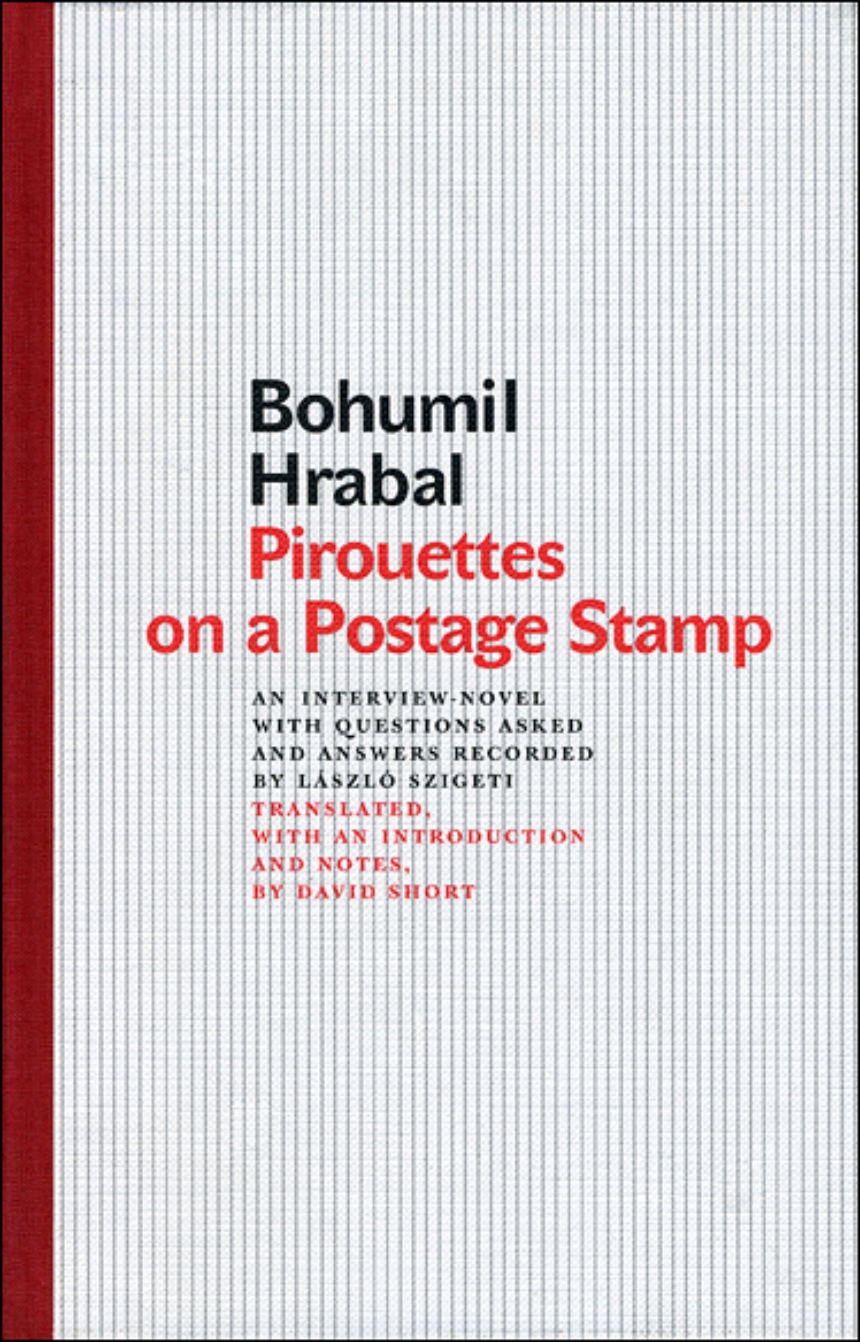Karolinum Press, Charles University
Pirouettes on a Postage Stamp
An Interview-Novel with Questions Asked and Answers Recorded by László Szigeti
9788024614472
9788024625751
9788024628950
Distributed for Karolinum Press, Charles University
Pirouettes on a Postage Stamp
An Interview-Novel with Questions Asked and Answers Recorded by László Szigeti
Novelist Bohumil Hrabal (1914–97) was born in Brno, Czechoslovakia and spent decades working at a variety of laboring jobs before turning to writing in his late forties. From that point, he quickly made his mark on the Czech literary scene; by his death he was ranked with Jaroslav Hašek, Karel Capek, and Milan Kundera as among the nation’s greatest twentieth-century writers. Known for writing about political questions with humor and vivid expressiveness, Hrabal also was given to experimentation—his early novel Dancing Lessons for the Advanced in Age, for example, consists of a single extended sentence.
Pirouettes on a Postage Stamp carried Hrabal’s experimentation to the field of autobiography. On its surface a verbatim record of an oral interview conducted by Hungarian journalist László Szigeti, the book confuses and confounds with false starts, digressions, and philosophical asides. Yet despite all the games and distractions, Hrabal’s personality shines through, compelling and unforgettable, making Pirouette on a Postage Stamp an unexpected treat for any lover of Czech literature.
Pirouettes on a Postage Stamp carried Hrabal’s experimentation to the field of autobiography. On its surface a verbatim record of an oral interview conducted by Hungarian journalist László Szigeti, the book confuses and confounds with false starts, digressions, and philosophical asides. Yet despite all the games and distractions, Hrabal’s personality shines through, compelling and unforgettable, making Pirouette on a Postage Stamp an unexpected treat for any lover of Czech literature.

